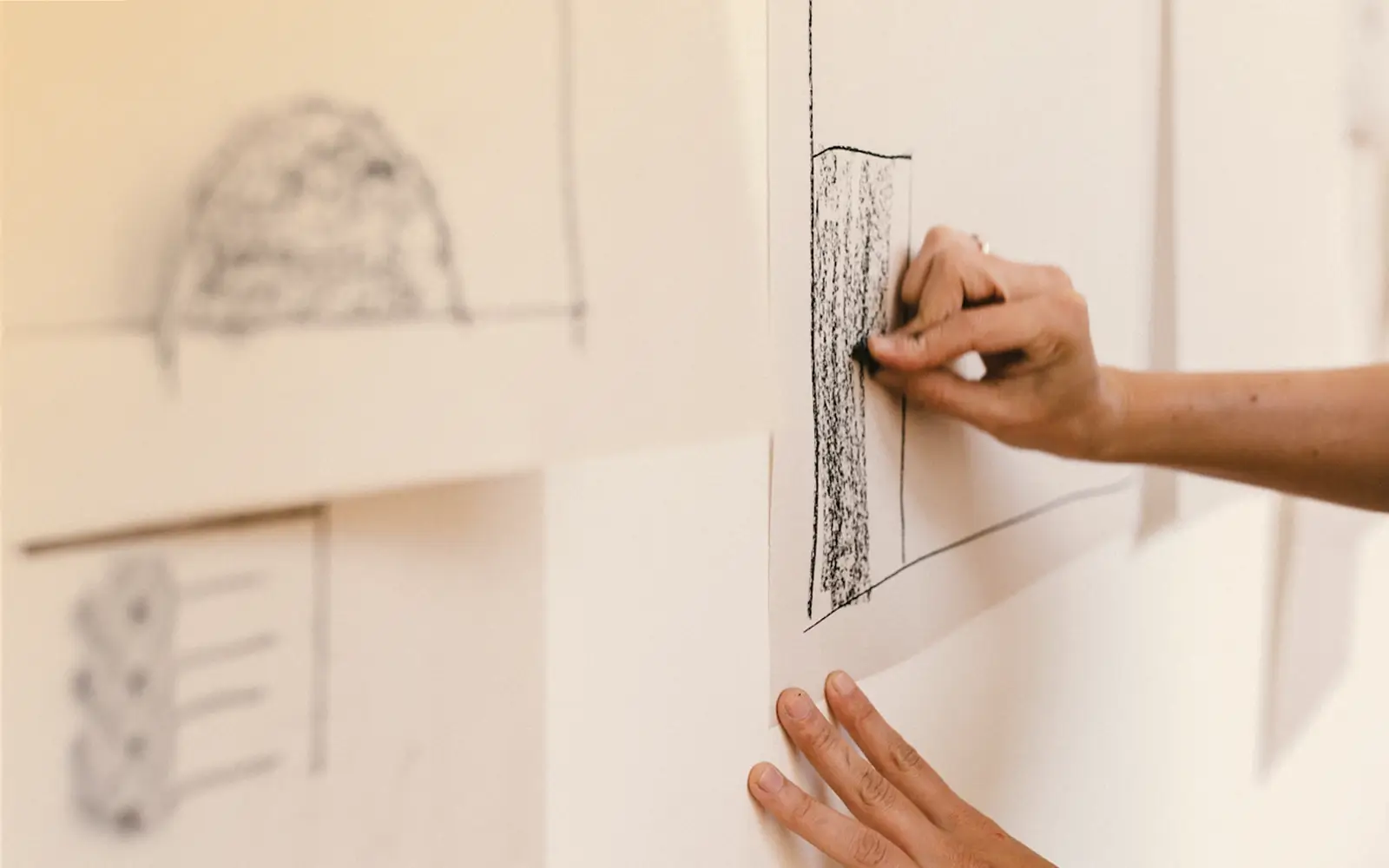Picture this: You’re staring at your computer screen late at night, willing your brain to produce that breakthrough idea your project needs. The coffee’s cold, your shoulders are tense, and despite the extra hours, inspiration remains elusive. Sound familiar? You’re not alone. Research from the Harvard Business Review reveals that 94% of professionals report working more than 50 hours per week, yet studies show that creativity and innovation actually decline after 50 hours of work.
The myth of the constantly-hustling innovator is just that—a myth. Recent global studies across industries show that companies implementing balanced work schedules see up to a 70% increase in creative problem-solving and innovation output. Even more compelling, the World Economic Forum’s research indicates that professionals who maintain healthy work-life boundaries are 3.5 times more likely to contribute breakthrough innovations to their organizations than their overworked peers.
The Science Behind Balance and Breakthrough Thinking
The connection between work-life balance and innovation isn’t just anecdotal—it’s rooted in neuroscience. When we’re constantly in “work mode,” our brains get stuck in linear thinking patterns, limiting our ability to make novel connections and generate creative solutions.
The Neural Networks of Innovation
- Default Mode Network: Activates during periods of rest, enabling connections between seemingly unrelated ideas
- Stress Response: Chronic overwork triggers cortisol release, inhibiting access to creative brain regions
- Recovery Periods: Essential for consolidating learning and generating new insights
The Innovation Paradox
- 72% of professionals report having their best ideas outside of work hours
- Time spent in nature increases creative problem-solving by up to 47%
- Regular breaks boost creative output by 31% compared to continuous work
For deeper insights into maximizing your creative potential, explore our guide on “The Innovation Edge: Leveraging Diverse Networks for Breakthrough Ideas.”
Building Your Innovation Ecosystem
Innovation thrives in an environment that balances intense focus with deliberate rest. Here’s how to create your optimal innovation ecosystem:
Strategic Disconnection
- Implement “deep work” blocks of 90 minutes, followed by complete disconnection
- Create dedicated spaces for different types of thinking
- Schedule “innovation walks” during natural energy dips
Creative Cross-Pollination
- Engage in diverse activities outside work
- Connect with people from different industries
- Pursue hobbies that challenge different thinking patterns
Energy Management
- Track your natural creativity peaks
- Align complex problem-solving with high-energy periods
- Build recovery rituals between intense work sessions
If you’re interested in developing your professional creativity further, “Originals” by Adam Grant offers fascinating insights into how non-conformists move the world forward.
The Balance-Innovation Framework
Transform your approach to work and creativity with this practical framework:
Intensity Intervals
- 90 minutes of focused creation: Work in concentrated bursts when your energy is highest to maximize creative output and minimize burnout
- 15 minutes of active recovery: Engage in physical movement or meditation to reset your mind and prepare for the next creative session
- 45 minutes of collaborative work: Schedule team interactions during medium-energy periods to benefit from collective creativity while maintaining focus
- 20 minutes of movement or nature exposure: Boost cognitive function and creative thinking through physical activity or time outdoors
Boundary Setting
- Define clear work start/end times: Set specific hours for work to create psychological safety and prevent creative energy depletion
- Create technology-free zones: Designate spaces without devices to allow your mind to wander and make unexpected connections
- Establish non-negotiable personal time: Block out time for activities that recharge your creative energy and protect it like any important meeting
- Communicate boundaries professionally: Express your availability clearly to colleagues, explaining how it benefits both individual and team creativity
Creative Rituals
- Morning pages for idea generation: Start each day with free writing to unlock creative thoughts and clear mental blocks
- Evening reflection sessions: Review the day’s insights and capture emerging ideas when your mind is naturally more reflective
- Weekly exploration time: Dedicate time to explore new concepts or skills that could spark innovative connections in your work
- Monthly innovation reviews: Assess your creative output and adjust your balance practices to optimize your innovation potential
For more strategies on maintaining professional boundaries, check out “Setting Boundaries for Personal Wellbeing.”
Practical Application: Your 4-Week Innovation Reset
The next four weeks will transform how you approach creativity and innovation. This structured program builds progressively, allowing you to establish new habits while measuring their impact on your creative output. Each week introduces new elements while reinforcing previous gains, creating a sustainable system for long-term innovative thinking.
Week 1: Assessment and Foundation
- Map your current work patterns: Track your daily schedule and energy levels to identify optimal times for creative work
- Identify energy peaks and valleys: Document when you feel most alert and creative versus when you struggle to focus
- Establish baseline creativity metrics: Record your current innovative output and satisfaction with your creative process
- Set up your innovation tracking system: Create a simple journal or digital tool to monitor your progress and insights
Week 2: Implementation
- Start 90/15 work/rest cycles: Begin implementing focused work periods followed by intentional breaks for maximum creativity
- Introduce two new non-work activities: Choose hobbies or interests that stimulate different thinking patterns and energy
- Begin morning pages practice: Start each day with 15 minutes of unstructured writing to unlock creative thinking
- Create dedicated thinking spaces: Designate specific areas for different types of work to enhance focus and creativity
Week 3: Refinement
- Adjust boundaries as needed: Fine-tune your work-life boundaries based on what’s working best for your creative flow
- Expand recovery activities: Add more restorative practices that help you maintain creative energy throughout the week
- Deepen creative practices: Build on your morning pages with additional creativity exercises and explorations
- Build support networks: Connect with others who value work-life balance and creative innovation
Week 4: Integration
- Solidify new routines: Lock in the practices that have proven most effective for your creative process
- Measure creativity improvements: Compare your current creative output and satisfaction against your baseline metrics
- Celebrate early wins: Acknowledge and reward yourself for the positive changes you’ve implemented
- Plan next phase of growth: Set new goals for continuing to enhance your creative practice while maintaining balance
24-Hour Challenge: Choose one work boundary to implement tomorrow and stick to it no matter what. Notice how this small change affects your creative thinking.
Your Creative Future Starts Now
The journey toward innovative thinking balanced with personal wellbeing isn’t just about productivity—it’s about sustainability and fulfillment. Through the strategies outlined in this guide, you’ve learned how strategic rest can fuel creative breakthroughs and how boundaries can actually expand your innovative potential rather than limit it.
Reflection Questions
- What current work patterns might be blocking your creative flow? Take a moment to identify specific habits that drain rather than fuel your innovative thinking.
- How could you create more space for serendipitous discoveries in your day? Consider which activities consistently lead to unexpected insights.
- Which boundary would make the biggest difference in your creative output? Think about where you most often feel your creative energy being depleted.
- What non-work activity consistently energizes your thinking? Reflect on moments when you’ve had breakthrough ideas during seemingly unrelated activities.
Immediate Action Steps
- Choose one element of the Balance-Innovation Framework to implement tomorrow
- Schedule your first creative recovery block for the next workday
- Set up a simple system to track how different patterns affect your innovative thinking
- Share your commitment to balanced creativity with one supportive colleague
For an even deeper dive into maximizing your creative potential while maintaining balance, explore “Deep Work” by Cal Newport. This transformative book provides advanced strategies for achieving peak creative performance while preserving your mental energy and personal time.
Remember, every step you take toward better work-life balance is also a step toward enhanced creativity and innovation. Your next breakthrough idea isn’t waiting at the end of another long day—it’s waiting in the space you create for it to emerge.
For ongoing support in your journey toward balanced innovation, check out our guide on “The Art of Effective Goal Setting and Achievement” which provides additional frameworks for sustainable success.





